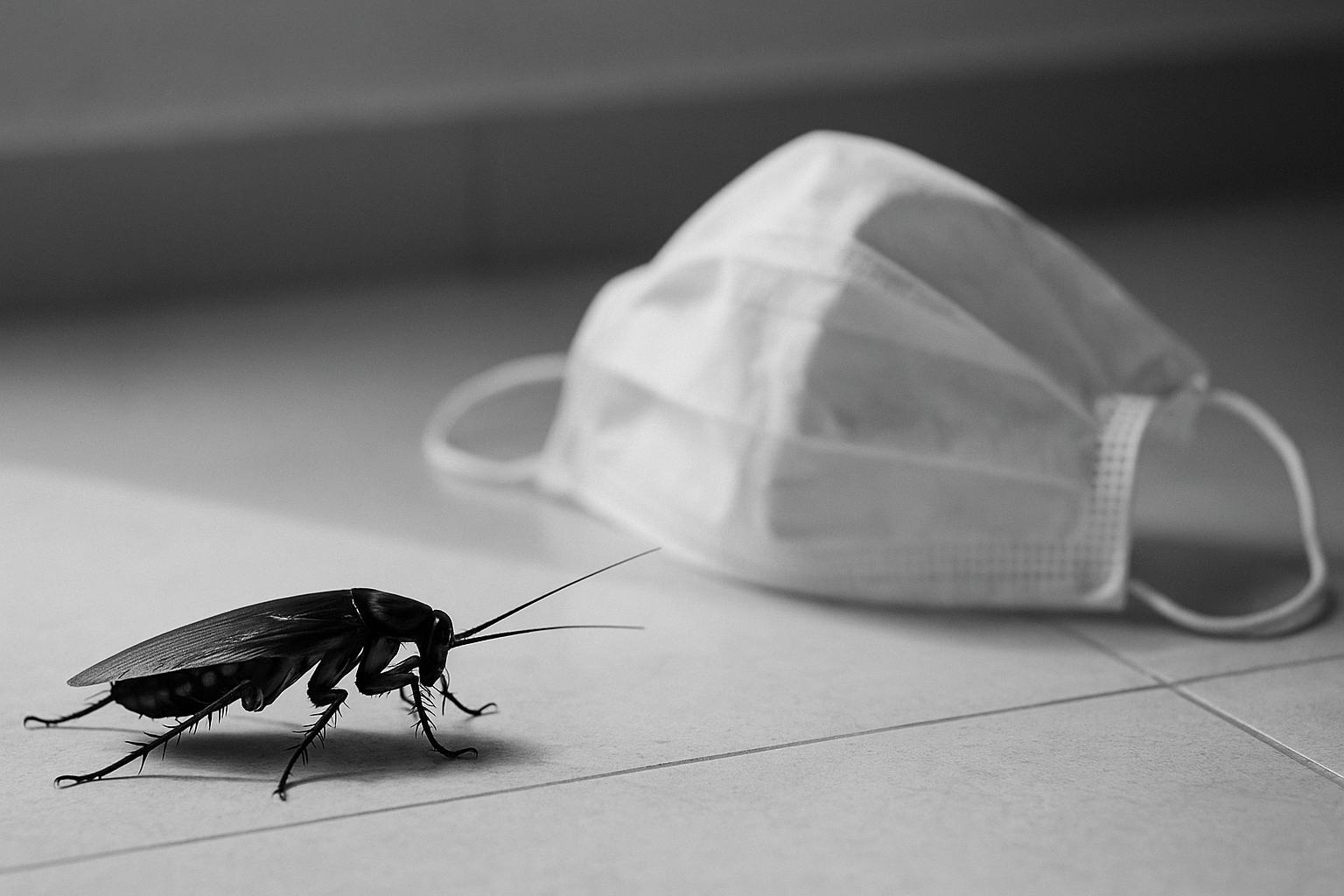Table of Contents
Introduction to Health Risks of Pests in Dubai
Dubai’s rapid urban growth and diverse climate create a unique environment where pests thrive. While many see pests as mere nuisances, they represent serious Health Risks of Pests in Dubai. This article explores these risks by listing the most common pests and the dangers they pose. Understanding these risks helps residents, businesses, and visitors protect themselves effectively. Pest-related health issues range from mild allergic reactions to life-threatening diseases. Dubai’s hot and humid conditions often intensify these impacts, making prevention and control essential.
Experts stress the importance of timely pest control measures to reduce exposure to harmful pathogens that pests may carry. For comprehensive guidelines on managing such threats, the Dubai Municipality Public Health & Pest Control Section provides valuable resources. Additionally, professional pest management services like Saniex General Pest Control offer specialized solutions to safeguard your environment.
Mosquitoes and Their Dangerous Diseases
Mosquitoes top the list when considering the Health Risks of Pests in Dubai. These insects act as vectors for numerous diseases, transmitting viruses and parasites through their bites. In the region, mosquitoes are known carriers of illnesses such as dengue fever, West Nile virus, and chikungunya—all of which can cause serious health complications.
Symptoms of mosquito-borne diseases vary but often include fever, joint pain, severe headaches, and rash. Repeatedly being bitten can also cause intense itching and secondary infections from scratching. The risk increases particularly during the warm months when mosquito populations surge.
Installing window screens, using mosquito repellents, and eliminating stagnant water are key preventive steps. Communities and households must be vigilant about mosquito breeding sites like open containers, pots, and drainage areas to reduce the Health Risks of Pests in Dubai.
Rodents and the Threat to Human Health
Rodents, including rats and mice, present significant challenges in Dubai due to their adaptability to urban environments. Their Health Risks of Pests in Dubai are extensive because they carry and transmit dangerous pathogens through urine, droppings, and bites.
Rodents can contaminate food supplies and living areas, spreading diseases such as leptospirosis, salmonellosis, hantavirus, and even plague in rare cases. Leptospirosis, in particular, is a concern in warm climates like Dubai’s because it can cause flu-like symptoms, liver damage, or kidney failure if untreated.
Infestations often go unnoticed until they are severe, so early detection is critical. Sanitation, secure food storage, and sealing entry points in buildings help reduce rodent access and minimize health hazards linked to Health Risks of Pests in Dubai.
Cockroaches as Vectors of Infections
Cockroaches pose serious health risks as they thrive in both residential and commercial settings. Their presence is often linked to poor hygiene, but even well-maintained properties can experience infestations due to their resilience.
These pests carry an array of bacteria such as E. coli, Salmonella, and Staphylococcus. As they move across surfaces, cockroaches contaminate food and utensils, increasing the risk of food poisoning and gastroenteritis for people in affected areas. Moreover, their body parts and droppings can cause allergic reactions and worsen asthma symptoms.
Maintaining a clean environment, promptly disposing of garbage, and employing targeted pest control reduce the Health Risks of Pests in Dubai from cockroaches.
Bed Bugs: Impact on Mental and Physical Well-being
Bed bugs represent a growing concern in Dubai’s hospitality sector and residential spaces. Though not traditionally known as disease vectors, they substantially affect health through constant biting and infestation stress.
Common symptoms of bed bug bites include red, itchy welts mostly around exposed skin areas like arms and legs. The persistent discomfort can disturb sleep, contributing to fatigue, anxiety, and even depression. Secondary infections may develop from scratching.
Given their elusive nature, detecting and eradicating bed bugs requires professional intervention. Travelers and residents should inspect bedding regularly, especially when moving into new accommodations or after travel, to lessen Health Risks of Pests in Dubai caused by these pests.
Flies and Food Contamination Risks
Flies are ubiquitous in Dubai, especially during warmer months, and contribute to the Health Risks of Pests in Dubai through their role in contaminating food sources. Houseflies and blowflies pick up pathogens on their legs and bodies from garbage, fecal matter, and rotting materials, then transfer them onto human food.
Diseases such as typhoid fever, cholera, dysentery, and food poisoning can result from fly contamination. Their rapid breeding cycles create large populations that can overwhelm households and businesses.
Securing waste bins, fastidious food handling, and use of fly screens remain simple yet effective preventive measures against fly-borne health threats.
Termites and Allergic Reactions
While termites are primarily known for structural damage, their presence is not free from Health Risks of Pests in Dubai. Termite droppings and shed wings contribute to dust and airborne allergens, triggering allergic reactions and respiratory issues, particularly in sensitive individuals.
Symptoms include sneezing, runny nose, itchy eyes, and worsening asthma symptoms. The persistent dust from termite infestations may increase indoor air quality problems.
Early detection combined with prompt treatment can mitigate health concerns and property damage related to these Health Risks of Pests in Dubai.
Scorpions and Their Poisonous Threats
Dubai’s desert environment hosts several scorpion species, some of which carry venom toxic to humans. Scorpion stings are painful and pose serious Health Risks of Pests in Dubai, especially for children, the elderly, and immunocompromised individuals.
The symptoms can range from localized pain, swelling, and numbness to severe allergic reactions, respiratory distress, and in rare cases, fatality. Immediate medical attention is crucial after a sting.
Preventing scorpion encounters involves sealing home entry points, clearing debris near living areas, and wearing protective footwear in high-risk zones to reduce these risks.
Spiders and Potential Health Dangers
Generally, most spider species in Dubai are harmless; however, bites from certain spiders can cause local tissue irritation or systemic effects. Though rare, bites from venomous spiders can lead to symptoms like pain, redness, muscle cramps, and in extreme cases, necrosis.
Spiders contribute to indoor pest concerns by startling residents and potentially aggravating arachnophobia, which may have indirect mental health effects.
Regular cleaning, foam barriers in dark corners, and pest control services help reduce spider presence indoors and help mitigate possible Health Risks of Pests in Dubai associated with them.
Preventing Health Risks of Pests in Dubai
Proactive prevention is the cornerstone of reducing Health Risks of Pests in Dubai. Here are practical measures you can take:
- Maintain Cleanliness: Regular cleaning discourages pests from settling indoors.
- Waste Management: Dispose of garbage correctly and frequently to prevent attracting pests.
- Seal Entry Points: Close gaps in windows, doors, and walls to block pest access.
- Manage Water Sources: Remove standing water to reduce mosquito breeding grounds.
- Use Protective Screens: Install window and door screens to keep insects out.
- Professional Pest Control: Engage certified pest control companies for effective treatment.
Educational campaigns and collaboration with local authorities amplify community-wide pest management success. Learn more about dedicated pest control services at Health Risks of Pests in Dubai.
| Pest | Primary Health Risks | Recommended Prevention |
|---|---|---|
| Mosquitoes | Dengue, West Nile virus, Chikungunya | Eliminate stagnant water, use repellents |
| Rodents | Leptospirosis, Salmonellosis | Seal entry points, maintain food hygiene |
| Cockroaches | Food poisoning, allergies | Cleanliness, waste disposal |
| Bed Bugs | Skin irritation, sleep disturbance | Regular inspections, professional treatment |
Conclusion and CTA
The Health Risks of Pests in Dubai are diverse and impactful, affecting millions of residents and businesses. Awareness and early intervention are crucial to controlling these threats and ensuring a healthy living environment.
Take action today: adopt preventive habits, maintain hygiene, and seek professional pest control to protect yourself and your loved ones. For tailored pest management solutions, visit Health Risks of Pests in Dubai. Healthy living starts with pest-free surroundings—don’t delay!





